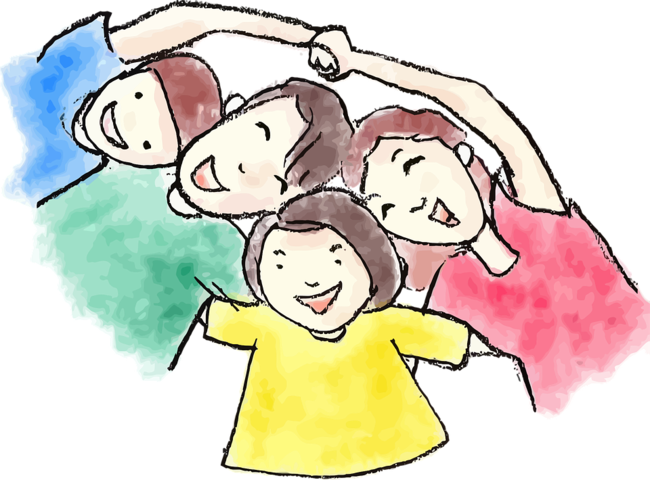 박소영
박소영
[The Psychology Times=박소영 ]

요즘 길어진 사회적 고립으로 인해 아이들이 언어 장애를 가지고 있다는 학술로 포스트 코로나 시간의 아이들을 향한 관심이 쏟아지고 있다. 실제로, 지난 설문조사에서 74.9%의 유치원 교사가 그리고 52.9%의 부모님들이 마스크가 아이들의 언어 노출과 발달을 방해했다고 믿고 있다. 분명, 마스크로 인해 제한된 “입술 읽기”로 아이들의 언어 장애를 주장하는 것 또한 타당한 근거이지만, 아이들에게 최선의 치료 방법을 제공하기 위해, 선택적 함구증과 같은 다른 진단 방향도 고려해 보아야 한다고 생각한다. 현재 유아와 청소년을 대상으로 선택적 함구증을 치료하는 심리상담 센터에서 인턴으로 일하면서, 그동안 보고 배웠던 경험을 이 기회를 통해 공유해보려 한다.
선택적 함구증(Selective Mutism)이란 무엇인가?
물론, 아이들마다 변동이 있을 수도 있지만, 선택적 함구증은 유아와 청소년기에 많이 보이는 극심한 불안 장애로 가족들과 아무런 어려움 없이 대화하다 학교나 집 밖의 환경에서 친구들이나 다른 어른들과 대화에 어려움을 겪는 증상을 일컫는다. 비록 선택적 함구증이 68% 이상 사회 불안 장애와 동시 진단이 내려지기도 하지만, 선택적 함구증은 사회 불안 장애보다 더 심하게 아이들의 학업 성취와 사회 발달 지연에 영향을 줄 수 있는, 뚜렷이 다른 진단이다.
선택적 함구증 부모자녀 상호작용 치료(Parent-Child Interaction Therapy-Selective Mutism)이란 무엇인가?
본래 실라 아이버그 (Sheila Eyeberg) 박사에 의해 만들어진 부모자녀 상호작용 치료(PCIT)는 자가조절과 외현적 행동 장애들을 겪고 있는 아이들을 위해 만들어졌다. 비슷한 행동 치료 방법으로, 스티븐 커츠(Steven Kurtz) 박사에 의해 만들어진 선택적 함구증을 위한 부모자녀 상호작용 치료(PCIT-SM)는 부모에게 행동 치료 원칙을 가르치는 것으로 시작해, 아이들의 선택적 함구증을 유발하는 요인들을 상담사와 부모가 같이 파악하며 개선해 나가는 과정이다. 예를 들어, 대화 중 아이들의 길어진 침묵으로 부모들이 대신 상황을 해결할 때가 있는데, 이러한 시간이 반복될수록 아이가 말을 하는 것에 대한 자신감과 자존감이 낮아질 수 있다. 부모가 먼저 아이와 충분한 놀이 시간을 가지며 대화할 수 있는 환경을 만들어주고, 천천히 사회와 비슷한 환경으로 아이를 노출해주며, 아이가 사회에서 대화할 수 있도록 안전한 환경을 인식시켜주고 만들어주는 것이 PCIT-SM 치료의 주목적이다.
PCIT-SM에서 중요한 원칙 중 하나로 PRIDE 기술이 있는데, 이는 바로 아동 주도 놀이 시간(CDI) 동안 어른들에 의해 사용되는 칭찬(Pride), 반복(Repeat), 모방(Imitate), 설명(Describe), 재미(Enjoyment)의 약자이다. CDI 동안 어른들은 아이들이 주도하는 놀이에 참여하면서 가장 높은 인정과 주목을 제공하는데, 간단한 실습의 예로, 만약 블록을 가지고 노는 아이와 있다면 부모들은:
“파란색 블록들을 빨간색 블록 위에 쌓아서 엄청나게 높은 탑을 만들었구나!
네가 이렇게 인내심 있고 조심스럽게 쌓아 올린 탑이 너무 멋지다고 생각해!"
와 같이 구체적인 칭찬 그리고 설명을 해줄 수 있다.
선택적 함구증과 언어 발달 장애
빠르게 움직이는 세상 속 요즘 아이들은 위와 같은 시간을 통해 받아야 마땅한 관심을 못 받는 경우가 많다. 또는 가벼운 관찰만으로 종종 우리는 말을 하지 않는 아이들을 수줍음이 많은 아이라고 넘겨짚기도 한다. 그동안 코로나 시간 동안 아이들은 발달적으로 얼마나 더 많은 어려움을 겪었을지 유전적, 사회적, 문화적 영향 등등을 고려하며 언어 장애와 더불어 선택적 함구증과 같은 진단도 언급해야 한다.
물론, 부모로서 아이가 선택적 함구증과 같은 진단의 갈림길에 서 있다는 것을 받아들이는 것이 힘들 수 있다. 하지만, 진단은 개선의 시작일 뿐, 위에서 언급된 PRIDE 기술과 같은 원칙들을 부모가 사용하면서 따듯한 관계를 형성하고 아이들의 자신감을 높여줄 수 있다면 포스트 코로나 아이들을 위해 충분한 도움이 될 수 있을 것이다.
There is an increasing interest toward children of post-Covid times, especially as many parents, school teachers, and experts believe that children nowadays present concerning language disorder after a long social isolation. In fact, from a recent survey, 74.9% of preschool teachers and 52.7% of parents in Korea believed that masks hindered their children’s exposure to language and development. However, although the limited “lip-reading” through masks does bring a valid concern toward language disorder, in order to provide the most fitting treatment option for today’s children, other disorders and treatment options should also be considered, such as Selective Mutism (SM). As an intern currently working at a clinical center treating children and adolescents with SM, I hope to share the knowledge and experience in SM through this opportunity.
What is Selective Mutism (SM)?
Although there are variabilities among children, Selective Mutism (SM) is a severe anxiety disorder that is visible from early childhood to adolescence that prevents children from speaking in social settings outside the home environment. Although there is a high comorbidity rate between SM and Social Anxiety Disorder (SAD) that can range above 68%, SM is a distinct anxiety disorder from SAD that can take a more severe representation such as that hinders children’s academic success and socialization skills.
What is Parent-Child Interaction Therapy for Selective Mutism?
Originally created by Dr. Sheila Eyeberg, Parent Child Interaction Therapy (PICT) targets children struggling with self-control and behavioral problems. As a similar behavioral intervention, Parent-Child Interaction Therapy for Selective Mutism (PCIT-SM) was developed by Dr. Steven Kurtz for children with SM, where the treatment begins with teaching parents behavioral principles to help recognize the elements that promote children’s SM. As an example, when children are unable to speak in social communication settings, parents tend to jump in to resolve such uncomfortable situations, in which case, if such habits of avoidance were repeated, then children with SM will lose a sense of self-efficacy and self-esteem in verbalization. The main goal of PCIT-SM is, then, to help children recognize society as a safe environment to talk by having parents to spend as much time with their children and then gradually exposing them to social settings to talk.
One of the important principles emphasized in PCIT-SM is what’s called PRIDE skills (Praise, Repeat, Imitate, Describe, and Enjoy) that are used during Child Directed Interaction (CDI). During CDI, as children lead their play, adults use PRIDE skills to pour showers of validation and attention to their children to encourage their verbalization. As a clinical example, when a parent sees a kiddo with blocks, they might describe, praise, and imitate the child by saying:
“You are adding blue blocks on a red block to build a huge tower!
I love the way you are building this so patiently and carefully!”
Selective Mutism and Language Disorder
Children rarely get the kind of attention as shown above, especially in today’s fast-paced world. Moreover, many times, we tend to put a label to a kiddo who wouldn’t speak in society as a shy kid. Understanding the kinds of developmental difficulties these children would have experienced during the times of Covid, it is important to consider all factors that may be influencing a child’s presentation, such as genetic, social, and cultural factors to better understand the necessary approach to treatment.
Indeed, as parents, it is hard to hear that their kids might be on the path to develop disorders like Selective Mutism. However, remembering that diagnosis only means a start to an improvement, if parents can be guided by PRIDE principles to bolster a warm relationship and increase the child’s confidence, such effort would be already a huge step to helping these children during post-pandemic times.
지난 기사
참고문헌
Cornacchio, D., Furr, J. M., Sanchez, A. L., Hong, N., Feinberg, L. K., Tenenbaum, R., Del Busto, C., Bry, L. J., Poznanski, B., Miguel, E., Ollendick, T. H., Kurtz, S., & Comer, J. S. (2019). Intensive group behavioral treatment (IGBT) for children with selective mutism: A preliminary randomized clinical trial. Journal of consulting and clinical psychology, 87(8), 720–733. https://doi.org/10.1037/ccp0000422
Cotter, A., Todd, M., & Brestan-Knight, E. (2018). Parent-Child interaction therapy for children with Selective Mutism (PCIT-SM). In L.N.Niec (Ed.), Handbook of Parent-Child Interaction Therapy (pp. 113-128). Springer Nature Switzerland.
Funderburk, B. W., & Eyberg, S. (2011). Parent–child interaction therapy. In J. C. Norcross, G. R. VandenBos, & D. K. Freedheim (Eds.), History of psychotherapy: Continuity and change (pp. 415–420). American Psychological Association. https://doi.org/10.1037/12353-021
Kamani, Z., & Monga, S. (2020). Understanding the Outcome of Children who Selectively Do not Speak: A Retrospective Approach. Journal of the Canadian Academy of Child and Adolescent Psychiatry, 29(2), 58-65. https://www.ncbi.nlm.nih.gov/pmc/articles/PMC7213919/
Kurtz Psychology Consulting PC [Website]. (연도 미상). URL: https://www.kurtzpsychology.com/
박현석. (2022). [사실은] "마스크 써서 아이 언어 발달 지연"…따져보니. SBS News: 사회. URL: https://news.sbs.co.kr/news/endPage.do?news_id=N1006329527&plink=COPYPASTE&cooper=SBSNEWSEND
윤해리. (2022). 코로나19로 언어 발달 치료 늘자 "보험 심사 강화"...부모들 "보험료 지급 회피 꼼수". YTN: 사회. URL: https://www.ytn.co.kr/_ln/0103_202203190522550606
이병문. (2022). `코로나 마스크`로 입술읽기 못한 아이들 언어발달에 악영향 미쳤다. 매일경제: IT.과학. URL: https://www.mk.co.kr/news/it/10327866
이순용. (2022). 코로나 19로 인한 ‘마스크’가 아이들 언어발달에도 영향미쳐. 이데일리: 의료.건강. URL: https://www.edaily.co.kr/news/read?newsId=02115606632327608
황상원. (2022). ‘마스크’ 우리 아이 언어발달에 미친 영향. 충청투데이: 의학칼럼. URL: https://www.cctoday.co.kr/news/articleView.html?idxno=2162273
이 기사는 지도 교수님인 Zohra Chahal 박사님과 Nicole Drost 박사님에 의해 검토된 내용입니다. This article has been reviewed by my supervisors, Dr. Zohra Chahal and Dr. Nicole Drost.
다른 곳에 퍼가실 때는 아래 고유 링크 주소를 출처로 사용해주세요.
 http://www.psytimes.co.kr/news/view.php?idx=4972
http://www.psytimes.co.kr/news/view.php?idx=4972

sp5562@nyu.edu